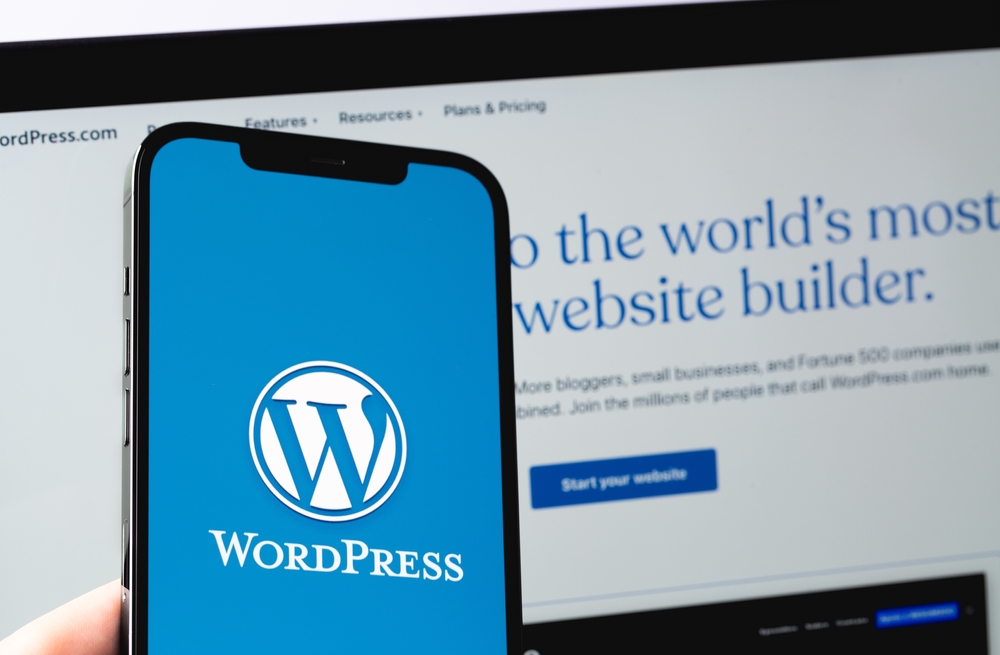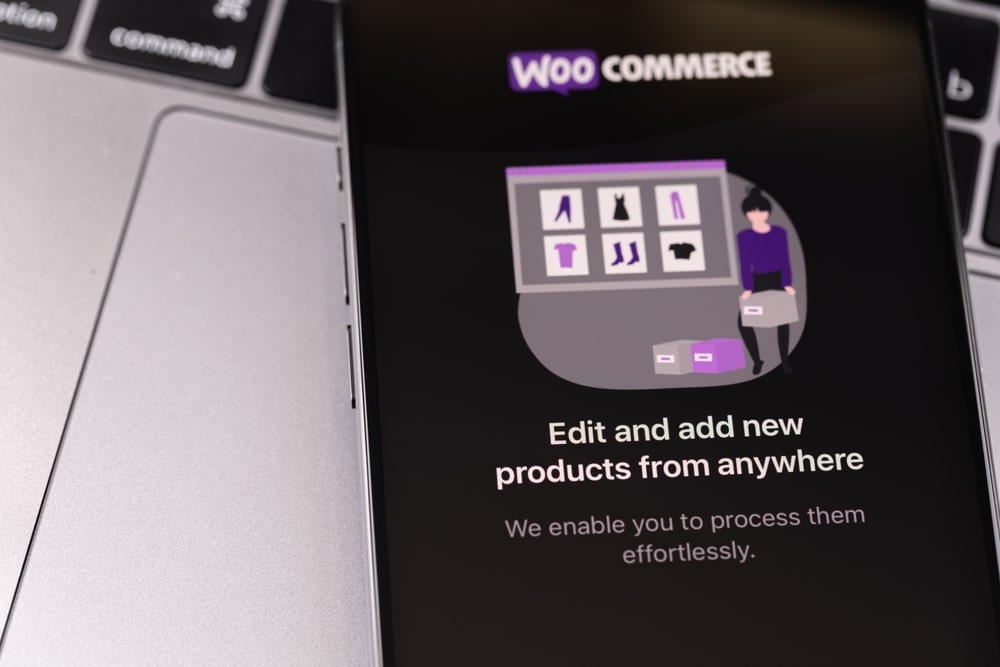In the ever-evolving digital landscape, your website is the virtual storefront that beckons visitors, conveys your brand identity, and facilitates meaningful interactions. As we step into the year 2024, the question on every entrepreneur and business owner’s mind is, “How much does a website cost in the UK?”
The financial investment required for a website is a multifaceted aspect that hinges on various factors, each playing a crucial role in determining the overall cost. From the intricacies of web design and functionality to the complexities of ecommerce integration and ongoing maintenance, staying abreast of the latest trends and industry benchmarks is pivotal for businesses aiming to make a significant impact in the digital realm.

In this exploration of the 2024 UK website cost landscape, we delve into the key elements influencing expenses, providing clarity on what businesses can expect as they embark on their digital journey. Whether you’re a start-up entrepreneur looking to establish an online presence or a seasoned business owner seeking to revamp your digital storefront, understanding the nuances of website costs is fundamental to making informed decisions and ensuring a competitive edge in the evolving digital marketplace.
Why are UK website costs important for businesses?
In the fast-paced and ever-evolving digital landscape, a website is more than just a virtual storefront; it’s a powerful tool that can make or break a business. For businesses in the United Kingdom, understanding the costs associated with creating and maintaining a website is not just a financial consideration but a strategic imperative. Let’s explore why UK website costs are crucial for businesses and how they impact various aspects of operations and success in the digital realm.
1. First Impressions Matter
In an era where consumers turn to the internet for almost everything, a website serves as the first point of contact between a business and its audience. The design, functionality, and overall user experience of a website create an immediate impression. A professionally crafted website instils trust and credibility, encouraging visitors to explore further. The cost of website development directly influences the quality of this first impression, making it an integral factor in establishing a positive online presence.
2. Reflecting Brand Identity
A website is an extension of a brand, reflecting its identity, values, and mission. The visual elements, colour schemes, and content contribute to shaping the brand image. Investing in a well-designed website ensures that the online representation aligns with the brand’s ethos. Businesses can effectively communicate their story and values, fostering a stronger connection with their target audience. The costs associated with web design play a pivotal role in defining and maintaining this brand consistency.

3. Competitive Edge in the Digital Marketplace
The digital marketplace is highly competitive, with businesses vying for the attention of online consumers. A website that stands out in terms of design, functionality, and user experience can be a significant differentiator. Investing in the latest technologies and trends that enhance user engagement can provide a competitive edge. Understanding and allocating budget for these enhancements is essential for businesses looking to stay ahead of the competition.
4. Conversion Optimisation
Beyond aesthetics, the functionality of a website is critical for converting visitors into customers. Whether it’s a seamless checkout process for an ecommerce site or an intuitive user interface for a service-oriented business, the cost of optimising for conversions is a direct investment in revenue generation. Businesses need to weigh the expense of such optimisations against the potential returns, making strategic decisions to maximise the effectiveness of their online presence.
5. Adaptation to Technological Advances
The digital landscape is characterised by rapid technological advancements. Websites built on outdated frameworks or lacking modern features risk becoming obsolete. Businesses must allocate budget for regular updates and technological advancements to ensure their websites remain secure, compliant, and aligned with the latest industry standards. Ignoring these updates can result in a loss of functionality, decreased visibility in search rankings, and potential security vulnerabilities.

6. User Trust and Security
In an era where online transactions are commonplace, user trust and security are paramount. Consumers are cautious about sharing personal and financial information online. The cost of implementing robust security measures, such as SSL certificates and secure payment gateways, is an investment in building trust. A secure website not only protects user data but also enhances the reputation of the business, leading to increased customer confidence and loyalty.
What impacts a website’s cost?
Creating a website in the UK or wherever in the world involves a set of factors and considerations, each contributing to the overall cost of development and maintenance. From the initial stages of planning to ongoing updates and enhancements, understanding the various components involved in the cost structure is essential for businesses and individuals alike. In this exploration, we’ll delve into the key elements that constitute the overall cost of a website in the UK.
1. Domain Name
The first step in establishing a website is acquiring a domain name. This is the unique web address that users will type into their browsers to access the site. Domain registration involves an annual fee, and the cost can vary depending on factors such as the domain extension (.com, .co.uk, etc.) and the popularity of the chosen domain name. For example, .ai domains are generally more expensive than .com domains as these domains are new to the market; you can find out more about ai domains here.
2. Web Hosting
Web hosting is the service that enables your website to be accessible on the internet. Hosting providers offer different plans based on factors like storage, bandwidth, and server resources. The cost of web hosting varies depending on the chosen hosting provider and the specific requirements of the website. Shared hosting is typically more cost-effective for small to medium-sized websites, while larger or high-traffic sites may require more robust hosting solutions.
3. Web Design and Development
The heart of a website lies in its design and development. The complexity of the design, the features required, and the level of customisation all influence the overall cost. Businesses may choose to use pre-built templates for a more budget-friendly option, while others opt for custom designs to align with their unique branding and functionality needs. Web development costs for UK websites also include the coding and programming necessary to bring the design to life, ensuring a seamless and responsive user experience.

4. Content Management System (CMS)
The choice of a CMS plays a significant role in UK website costs. Open-source platforms like WordPress are popular for their flexibility and ease of use, but businesses may incur additional costs for customisations or premium themes and plugins. Custom-built CMS solutions, on the other hand, offer more control but come with higher upfront development costs.
5. Additional Services
Quality content is a key driver of user engagement and search engine visibility. Businesses may need to allocate budget for professional copywriting, graphic design, and multimedia content creation. High-quality and relevant content not only enhances the user experience but also contributes to the overall success of the website.
6. Ongoing Maintenance and Updates
Websites are dynamic entities that require regular maintenance to ensure optimal performance and security. Ongoing costs include software updates, security patches, and monitoring for potential issues. Neglecting maintenance can lead to decreased performance, security vulnerabilities, and potential disruptions to the user experience.
How Much Does A Website Cost in the UK
Now that we have got that out of the way, let’s look at how much does a website cost in the UK, comparing a range of website types, platforms and additional information.
| AI Website | £50-£250 |
| Do-It-Yourself Website | £100-£500 |
| Bespoke Website | £550-£850+ |
| Ecommerce Website | £850-£1,200+ |
| Custom Functionality Website | £2,000-£5,000+ |
We are always happy to discuss website costs in more detail and if you’re looking to start a project, get in touch with us here.

UK Website Cost Comparison – Website Types
In the dynamic landscape of UK websites, costs vary significantly based on the type and complexity of the website. Understanding these distinctions is crucial for businesses and individuals looking to invest wisely in a website that aligns with their goals, target audience, and overall digital strategy.
How much does a DIY UK website cost?
Embarking on a Do-It-Yourself (DIY) website project can be an enticing option for individuals or small businesses seeking cost-effective solutions. DIY website costs can vary widely depending on the tools and resources chosen for the project.
While the idea of a Do-It-Yourself (DIY) website may seem tempting for its potential cost savings, there are compelling reasons to reconsider this approach. Opting for a DIY website may not always be the most cost-effective or efficient solution, especially for businesses or individuals with specific goals and professional aspirations. By using a website design agency like us, your business will benefit from a more scalable, secure, and visually appealing website that aligns with business objectives and attracts your target audience.

How much does a bespoke UK website cost?
Bespoke websites, characterised by their tailor-made design, unique features, and customised functionalities, offer businesses and individuals a distinct online identity that aligns precisely with their goals and brand image. Even though these websites may not be the most complex, they provide businesses with a digital home to send potential clients to without having to completely break the bank with an all signing and dancing custom website.
Bespoke UK Website Cost Analysis
Here is an analysis of the average cost for a bespoke website in the UK.
| Website Feature | Cost |
| Domain Name | £10-£20 per year |
| Website Hosting | £50-£100 per year |
| Website Design & Development | £450-£650 |
| Website Maintenance | £30-£50 per month |
How much does a UK ecommerce website cost?
Determining the cost of an ecommerce website in the UK involves various factors, making it a nuanced process. Basic expenses often include domain registration, web hosting, and possibly a website builder or CMS platform. For budget-conscious businesses, pre-designed templates on platforms like Shopify, WooCommerce, or Wix offer cost-effective options, though customisation may be limited. As requirements grow, expenses increase, driven by the need for premium themes, advanced functionalities, and a seamless user experience.

Custom development by professional agencies (like us) provides the highest level of personalization, accommodating unique branding and complex features. Costs for bespoke ecommerce sites vary widely based on the scale and intricacy of the project. Additional factors influencing expenses include integrations with payment gateways, security features, and ongoing maintenance.
Moreover, ecommerce platforms may charge transaction fees or subscription costs for higher-tier plans. Businesses must consider the potential expenses related to marketing, SEO, and maintenance for sustained success. Adopting a scalable approach allows businesses to start with a basic setup and expand gradually as their needs evolve.
Ultimately, the cost of an ecommerce website in the UK depends on the business’s goals, size, and desired functionality. It’s crucial to strike a balance between budget constraints and the necessity for a robust online presence, ensuring the chosen solution aligns with the business’s long-term objectives while remaining adaptable to changes and growth in the digital landscape.
UK Ecommerce Website Cost Analysis
Here is an analysis of the average cost for a ecommerce website in the UK.
| Website Feature | Cost |
| Domain Name | £10-£20 per year |
| Website Hosting | £75-£150 per year |
| Website Design & Development | £750+ |
| Website Maintenance | £50+ per month |
How much does a UK custom website cost?
The high cost of custom websites in the UK is tied to the complexity of crafting bespoke online solutions. Unlike off-the-shelf alternatives, custom websites are built from the ground up, requiring a profound understanding of the business’ unique needs and a precise design process. This personalised approach demands a significant investment in skilled professionals who can translate specific requirements into a finely tuned digital experience.

UK Custom Website Cost Analysis
Here is an analysis of the average cost for a custom website in the UK.
| Website Feature | Cost |
| Domain Name | £10-£20 per year |
| Website Hosting | £200-£400+ per year |
| Website Design & Development | £1700+ |
| Website Maintenance | £100+ per month |
UK Website Cost Comparison – Website Platform
How much does a UK WordPress website cost?
The cost of a WordPress website in the UK varies based on factors like complexity and features. A basic site using standard templates can be budget-friendly, while more intricate ones with custom designs, ecommerce capabilities, or specialised plugins may incur higher expenses.
It’s essential to consider ongoing costs such as domain registration, hosting, and potential maintenance. The overall expense reflects the website’s complexity and the level of expertise involved in its development, making it important for businesses to align their budget with their specific online requirements.

UK WordPress Website Cost Analysis
Here is an analysis of the average cost for a WordPress website in the UK.
| Website Feature | Cost |
| Domain Name | £10-£20 per year |
| Website Hosting | £50-£100 per year |
| Website Design & Development | £450-£750+ |
| Website Maintenance | £30-£50 per month |
How much does a UK Wix website cost?
Wix website costs in the UK vary, influenced by factors like design complexity and additional features. Basic Wix plans provide affordable options with pre-designed templates suitable for straightforward websites. As customisation requirements increase, costs may rise due to the need for premium templates, advanced functionalities, or tailored designs. Businesses seeking unique branding or ecommerce capabilities might opt for higher-tier plans, potentially incurring additional expenses. Also, it’s essential to consider ongoing expenses like domain registration and hosting.
The flexibility of Wix allows users to align their website costs with specific needs, making it accessible for both budget-conscious individuals and those requiring more sophisticated online solutions.

UK Wix Website Cost Analysis
Here is an analysis of the average cost for a Wix website in the UK.
| Website Feature | Cost |
| Domain Name | £10-£20 per year |
| Website Hosting | Included within subscription |
| Wix Subscription | £7-£119 per month |
| Website Design & Development | £300-£450+ |
How much does a UK Shopify website cost?
Shopify website costs in the UK vary based on factors like customisation and features. Entry-level plans offer budget-friendly options with standard templates suitable for small businesses. As website complexity increases, expenses may rise due to the need for premium themes, advanced functionalities, or custom designs. Businesses requiring robust ecommerce capabilities often opt for higher-tier plans with additional costs. As well as this, it’s important to consider ongoing expenses such as transaction fees and payment gateway charges.

Shopify’s scalability accommodates diverse budgetary needs, making it accessible for both start-ups and established enterprises seeking tailored online solutions without the need for extensive coding expertise.
UK Shopify Website Cost Analysis
Here is an analysis of the average cost for a Shopify website in the UK.
| Website Feature | Cost |
| Domain Name | £10-£20 per year |
| Website Hosting | Included within subscription |
| Wix Subscription | £19-£259 per month |
| Website Design & Development | £450-£600+ |
In summary
The landscape of UK website costs in 2024 reflects a diverse range of options, each tailored to specific needs and preferences. From WordPress and Shopify catering to varied functionalities, to user-friendly platforms like Wix and the flexibility of custom and bespoke solutions, businesses and individuals have abundant choices. The costs associated with domain registration, hosting, design, and additional features underscore the importance of aligning the chosen platform with the unique goals and requirements of each project.
Whether opting for a DIY solution or investing in professional services, understanding the intricacies of each option empowers stakeholders to make informed decisions. As technology evolves, the dynamic interplay of features, customisations, and user experience remains pivotal in determining the overall cost and success of a UK website in 2024.
If you are looking for a website to launch your new venture or a website redesign to boost your online presence, we’d love to hear from you.
Get in touch today and let’s get the ball rolling on your project.




